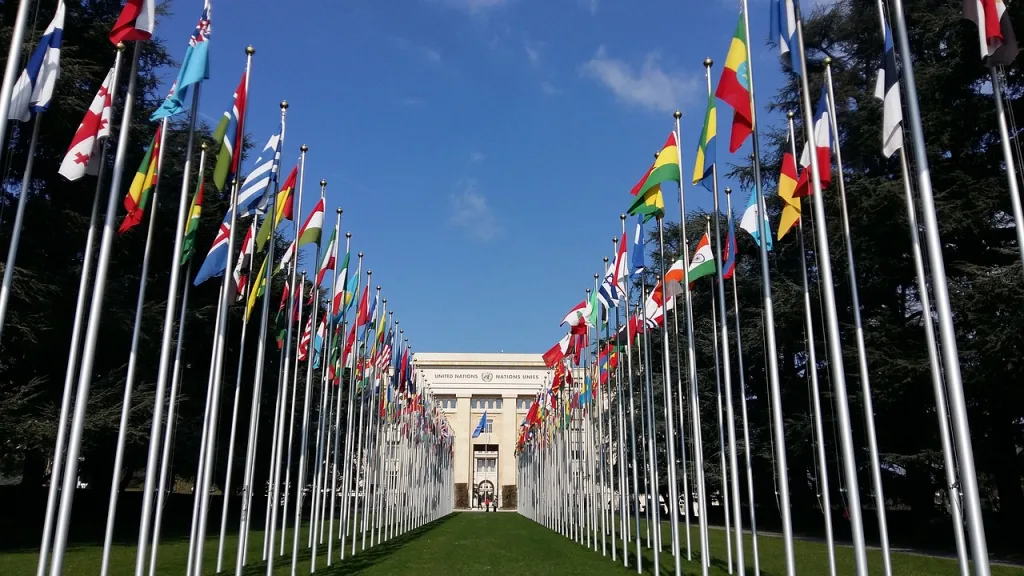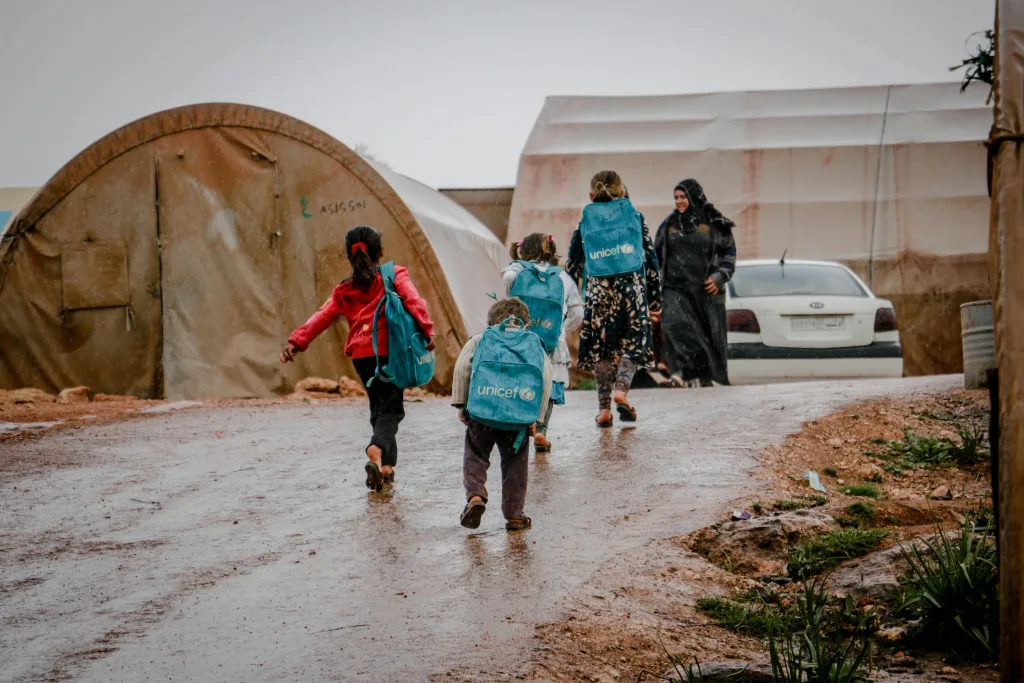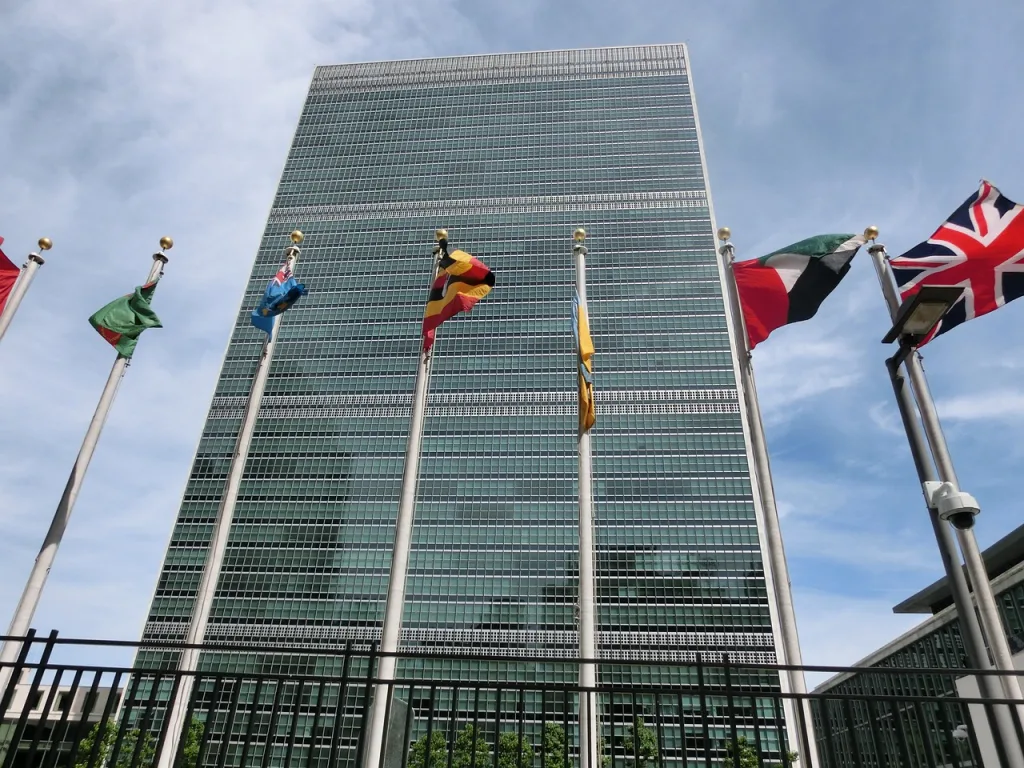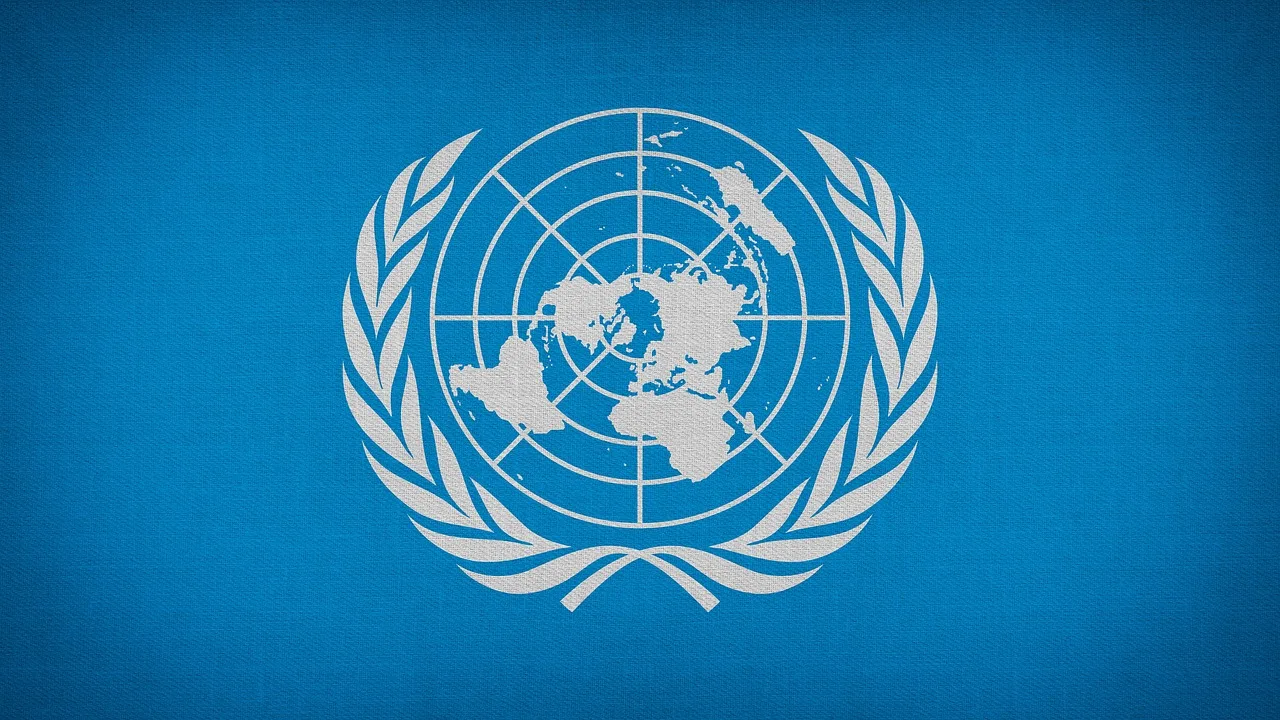Every year, on October 24th, the United Nations Day is celebrated – the day in 1945 when the UN Charter came into force, marking the beginning of its operations. On this occasion, we will delve into the purpose, structure, and activities of this organization.
Read also: Greenpeace Ukraine Director Natalia Gozak: “After the war, there should be a country left suitable for the life of future generations”
Purpose
The United Nations was founded on October 24, 1945, in the aftermath of the devastating Second World War, as a beacon of hope for peace and cooperation among nations. The idea of creating an international organization to prevent future global conflicts emerged even before the war ended. The primary goals of the UN, as outlined in its Charter, are to maintain international peace and security, develop friendly relations among nations, and address global challenges such as climate change, hunger, poverty, human rights, and education. While the core objectives of the UN have remained unchanged, its priorities and methods have evolved over time to address emerging global challenges. The organization unites 193 member states and serves as a crucial platform for international cooperation.
Read also: East SOS: withdrawal of IDP funds is a threat to human rights
Structure
The principal deliberative, policymaking and representative organ of the UN is the General Assembly. Its members discuss global issues, adopt resolutions and make recommendations on a wide range of international questions, including peace and security, development, human rights, and international law. Each member state in the General Assembly has one vote.

The Security Council has primary responsibility for the maintenance of international peace and security. It decides which measures to take to restore international peace and security, and to consider what actions to take on the reports of the Secretary-General on the political situation in various parts of the world. The Security Council consists of 15 Members, including five permanent members: China, France, Russia, the United Kingdom, and the United States, each of which has a veto power. Russia, despite facing criticism from many countries, remains a permanent member of the Security Council and continues to participate in votes and discussions on international issues. Calls for a review of Russia’s membership in the Security Council have been made but have not yet yielded results.
The Economic and Social Council is responsible for promoting international economic and social progress and development, and for advancing cooperation in the fields of health, education, culture, and human rights. It coordinates the activities of the specialized agencies of the UN system, such as the World Health Organization and UNESCO.
The International Court of Justice is the principal judicial organ of the United Nations. Its function is to settle, in accordance with international law, legal disputes submitted to it by States and to give advisory opinions on legal questions referred to it by authorized United Nations organs and specialized agencies.
The Secretariat is the administrative arm of the UN. It carries out the day-to-day work of the Organization. The Secretary-General is the chief administrative officer of the United Nations and represents the Organization as its spokesperson. The current Secretary-General is António Guterres, a former Prime Minister of Portugal and former United Nations High Commissioner for Refugees.
Read also: International humanitarian law: protecting humanity in the midst of war
Agencies
The UN has several specialized agencies, each with a focus on different aspects of global cooperation and assistance.
Some of the main agencies include:
- UNICEF (United Nations Children’s Fund), established in 1946 to provide relief and rehabilitation for children who were victims of World War II. Today, UNICEF works in 190 countries and territories to provide children with health, nutrition, education, protection, and child rights.

- WHO (World Health Organization), established in 1948, is the directing and coordinating authority on international health within the United Nations system. It is responsible for providing leadership on global health matters, shaping the health research agenda, setting norms and standards, articulating evidence-based policy options, providing technical support to countries, and monitoring and assessing health trends.
- WFP (World Food Programme) is the world’s largest humanitarian organization addressing hunger and food security. Established in 1961, the WFP provides food assistance in emergencies and works to improve nutrition and food security.
- UNDP (United Nations Development Programme), created in 1965, helps countries achieve the Sustainable Development Goals. It advocates for change and connects countries to knowledge, experience and resources to help people build a better life.
- UNESCO (United Nations Educational, Scientific and Cultural Organization), established in 1945, contributes to peace and security by promoting collaboration among nations through education, science, culture and communication.
- ILO (International Labour Organization), founded in 1919, promotes social justice and internationally recognized human and labor rights. It sets international labor standards, promotes employment and generates opportunities for women and men to work in a safe and secure environment.

Each of these agencies works in partnership with governments, development partners and civil society to achieve its goals.
Read also: Assistance for humanitarian organisations: what is Building Block and how it works
The UN in Ukraine
The UN’s involvement in Ukraine encompasses a broad spectrum of areas, including security, humanitarian aid, development, human rights, and reform support. Since the onset of the conflict in eastern Ukraine in 2014 and the full-scale Russian invasion in 2022, UN agencies such as the World Food Programme, UNICEF, and the World Health Organization have been providing critical assistance to those affected by the war. Their aid includes food, medical supplies, psychological support, access to clean water and sanitation, as well as demining efforts and housing for displaced persons.
The United Nations Development Programme (UNDP) is actively engaged in supporting Ukraine’s reform efforts, which aim to strengthen democratic institutions, uphold the rule of law, combat corruption, and decentralize power. UNDP also promotes sustainable development initiatives, economic growth, environmental conservation, and capacity building for local communities.
The UN has consistently advocated for a peaceful resolution to the conflict in Donbas, supporting the efforts of Ukraine and the international community. While the organization does not have a peacekeeping mission in Ukraine, it is actively involved in mediation efforts, assisting in de-escalation, and monitoring violations of international law.
Read also: Deputy Chief Coordinator of Médecins Sans Frontières in Ukraine Andriy Slavutskyi: Our task is to support access to decent medicine
Criticisms of the UN
Despite its significant role in the global arena, the UN faces numerous criticisms. One major criticism is its perceived inefficiency in addressing global challenges. The UN is often accused of failing to prevent or stop armed conflicts, as evidenced by its response to crises in Syria and other countries. Another common criticism is the organization’s bureaucracy and complex decision-making processes, which can lead to delays and the inefficient use of resources. Additionally, the veto power held by the permanent members of the Security Council has often been cited as an obstacle to effective action, as it can block decisions necessary to resolve international conflicts.
Read also: Victoria Titova: “A city is not just buildings. It’s about life”



